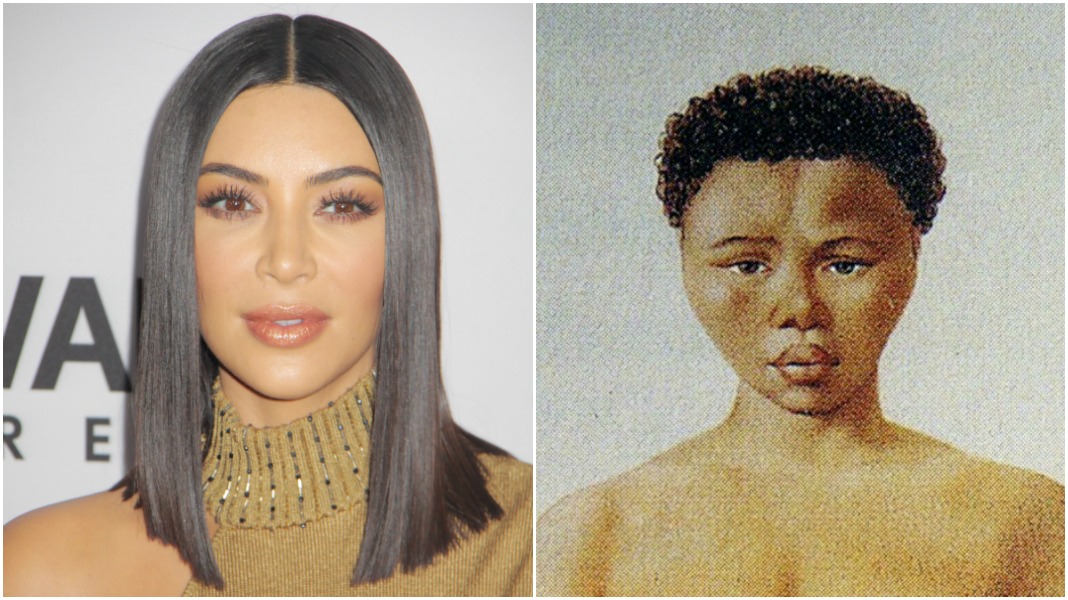
Many of us have become familiar with the tragic story of Sarah Baartman, also known as Venus Hottentot or Saartje Baartman. For those who don’t, she was the South African woman who was enslaved in the 1800s and ended up being exploited for the shape of her body throughout Europe until she died and long afterward.
There are few people who have experienced the atrocities Sarah Baartman did. Still, that didn’t stop The New York Times from likening her to Kim Kardashian.
In a review of Suzan-Lori Parks’ Venus, they called Baartman “A Kim Kardashian of another era.”
This is wrong on so many different levels. One, Sarah Baartman was dehumanized and reduced to nothing more than her natural body. She didn’t elect to have some type of plastic surgery. And it was White people, White men specifically who gained financially from her body while she died with nothing. Even in death, her body was desecrated, being chopped up and displayed in various museums until the 1970’s. The Kardashian family alteration of their bodies is an investment. An investment that has paid off. Traditionally Black features are celebrated on the Kardashian women. The augmented behinds and lips and whatever other work they’ve had done make the family more alluring and thereby more commercially marketable. They benefit financially from their body augmentation.
The Kardashian family alteration of their bodies is an investment. An investment that has paid off. Traditionally, Black features are celebrated on the Kardashian women. The augmented behinds and lips and whatever other work they’ve had done, make the family more alluring and thereby more commercially marketable. Whether it’s a sex tape, editorial spread or their reality show, they benefit financially from their body augmentation.
And the fact that Ben Brantley, the author of the article and his editors at The New York Times, couldn’t see there are no similarities between Kim and Sarah, became yet another argument for the need of Black women writers in mainstream publications. Because clearly there are not enough voices of color to speak up in positions of power in these places.
Thankfully, there were some Black women who had plenty to say to The New York Times.
https://twitter.com/littygillespie/status/864870930551635968
https://twitter.com/xodanix3/status/864498887993765892
Even when they edited the tweet, it was still off.
Wrong. Baartman was never the recipient of any fortune. They eventually apologized for the initial tweet.
They initially apologized for the tweet.
We’re willing to bet that even after viewing the play that they still don’t understand the error of their ways.









